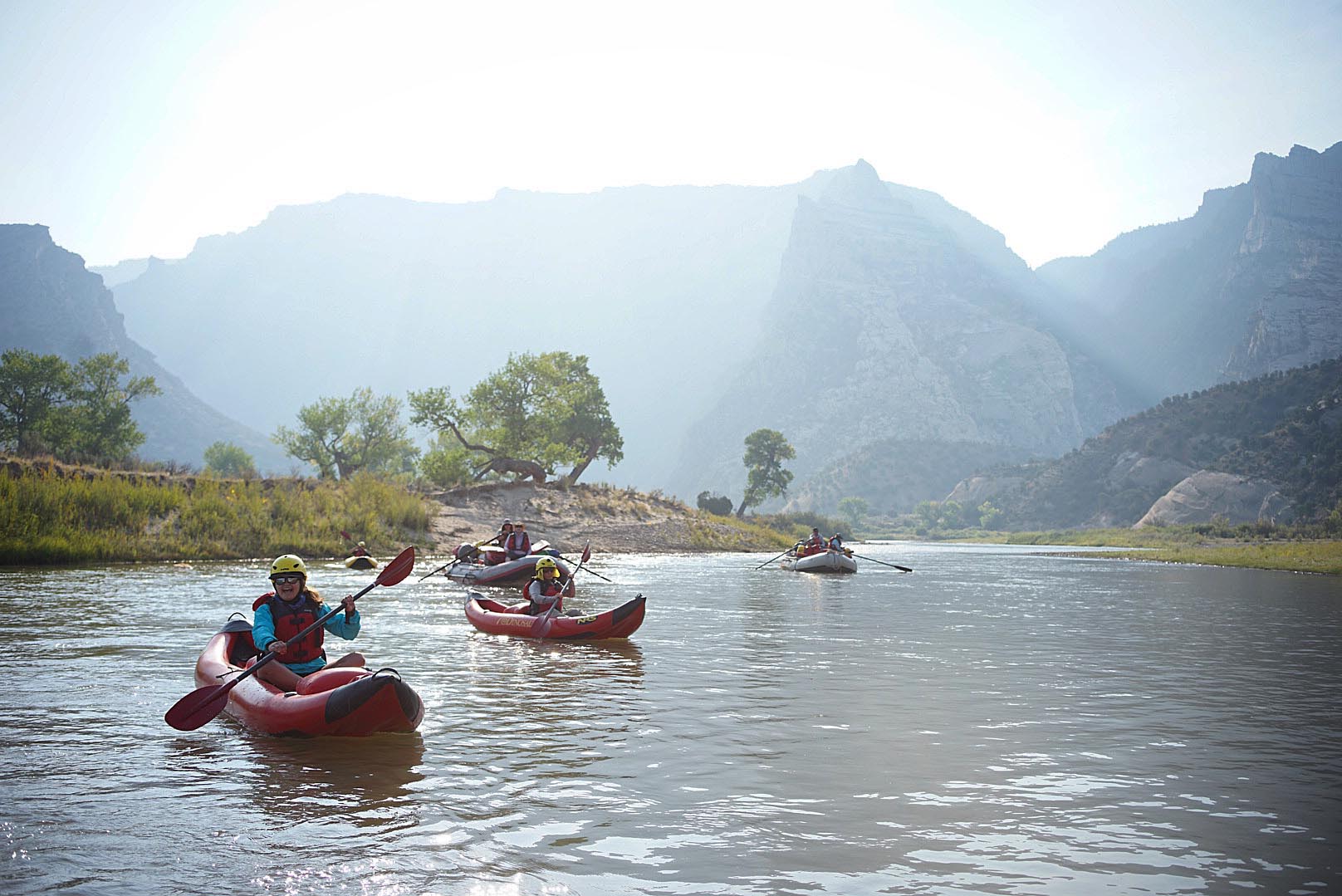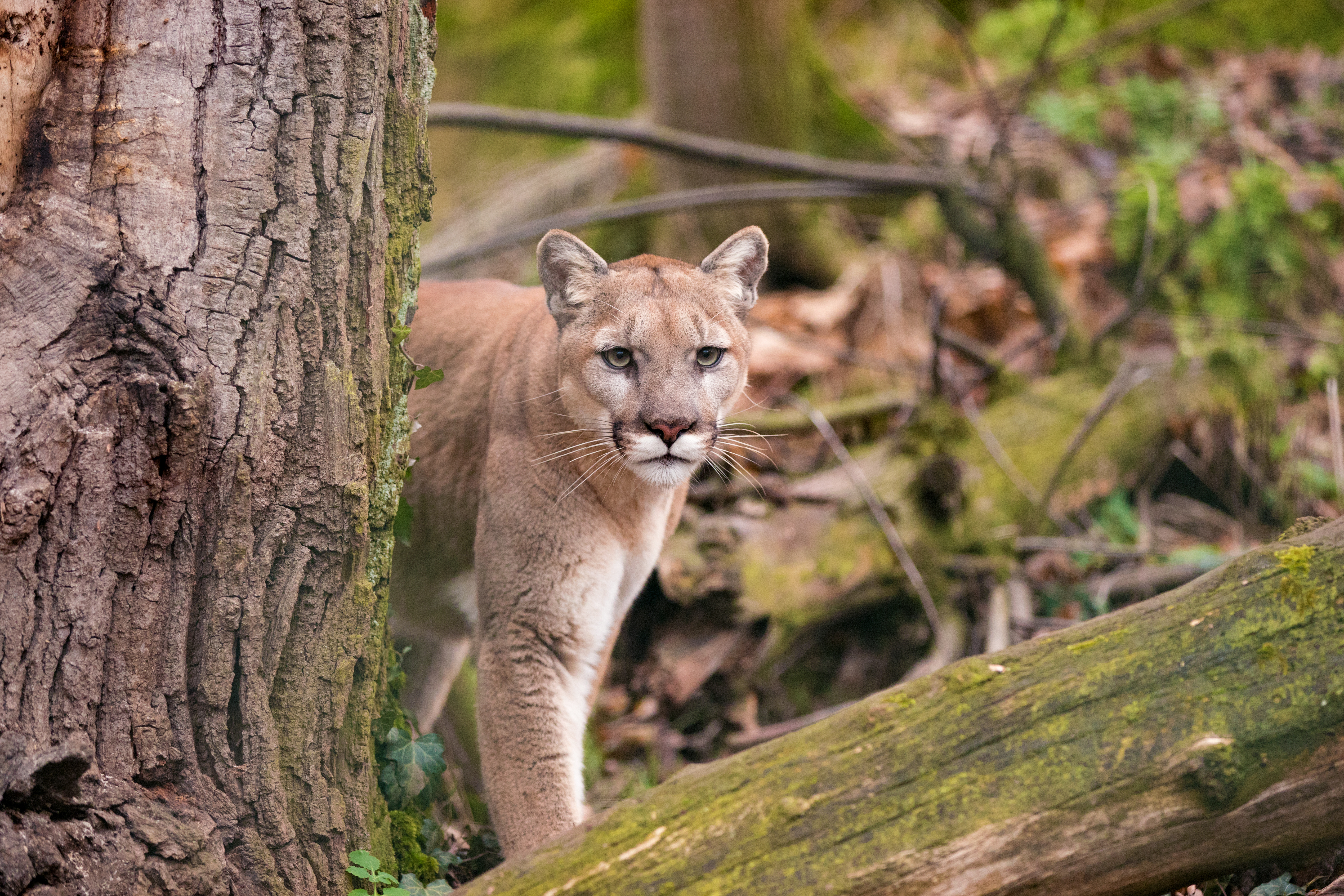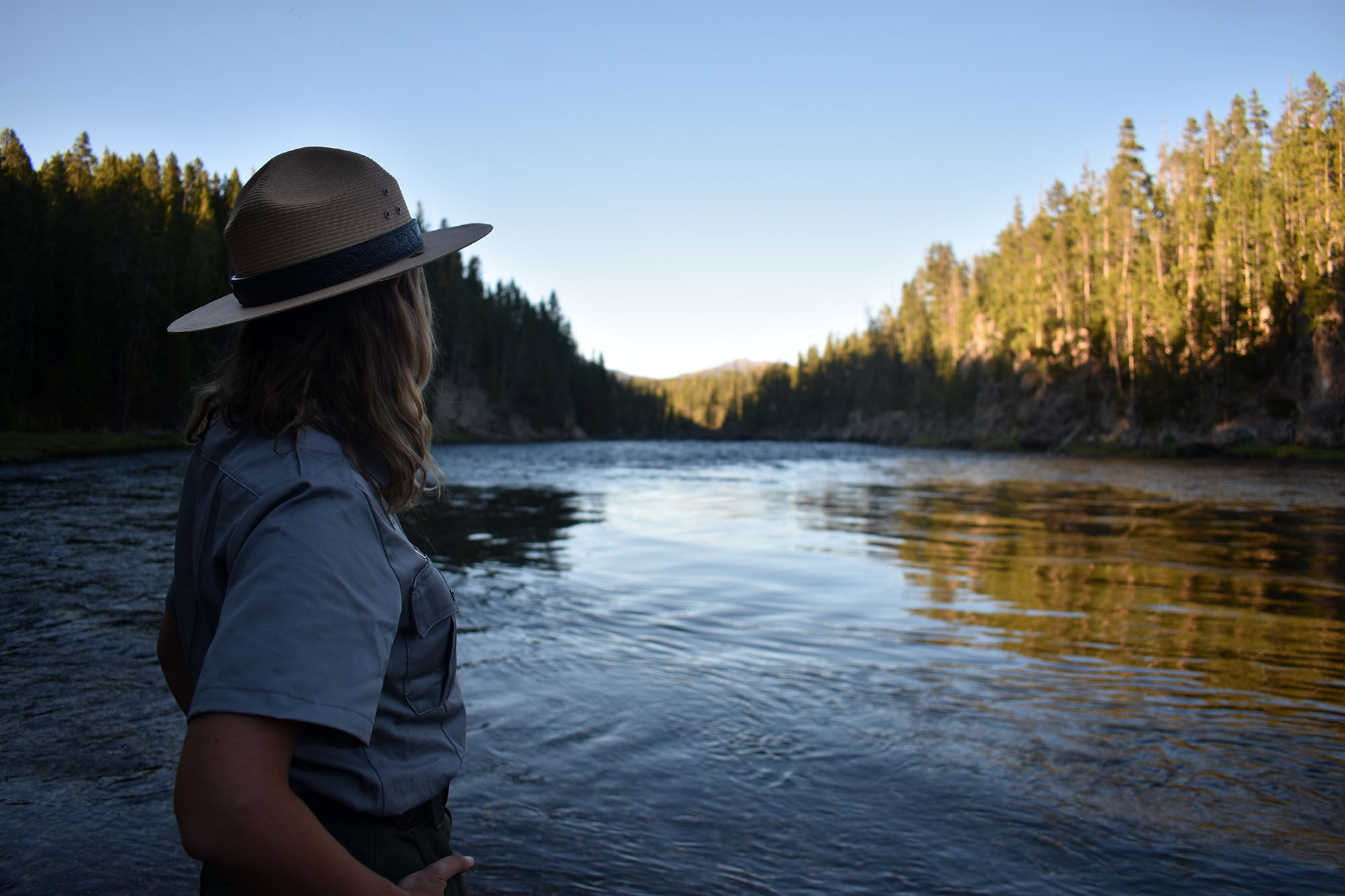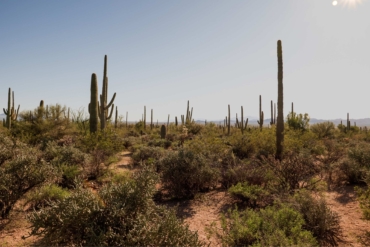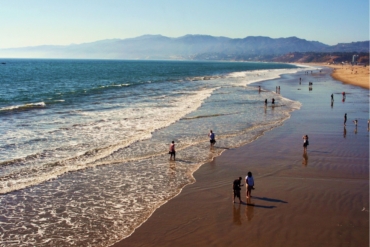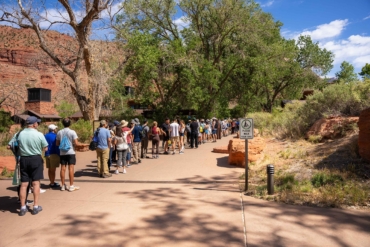A guided river trip might be the perfect segue into the backcountry for folks looking for an in-depth introduction to life outdoors.
I’ve spent a lot of time in the backcountry, and I’ll admit that though I love it — it’s arduous. I am responsible for my food, my gear, my comfort, and my sense of safety.
If something goes wrong, I’m the captain now. I am guide, cook, wayfinder, maid, and client. I am not always perfect at each of these roles. And I do not always want to take them on. And I’ve done river trips before in the spirit of both teamwork and independent effort.
But, for the first time, over the past week, I had the pleasure of being a client on the river. For 5 days and 4 nights, I put my safety, hunger, sense of direction, knowledge of place, and general basic care into the hands of four very experienced and beyond courteous river guides.
And wow, you guys. Everyone should be so lucky.
I rafted the Green River through the Gates of Lodore with Dinosaur River Expeditions in Vernal, Utah. Owners Tyler and Jen Callantine — and their megatalented group of guides — go above and beyond for their guests. And they’ve certainly set a high precedent for this article (and future river trips).
If you’re curious about taking a guided overnight river trip, read on for the ins and outs of what you can expect and why you should go.
A Guided Multiday River Trip: What to Expect
Prior to the Trip
If you’re not used to packing for the outdoors, it can be overwhelming to try to figure out exactly what you’ll need for a stretch of time without access to the developed world.
But, a good guide company will send along a packet with a lot of information. For my trip, they sent paperwork that needed to be signed, a full packing list meant for the length of time we would be on the river, and a sample itinerary.
Gear-wise, many guide companies will have gear available to rent if, say, you don’t have an appropriate sleeping bag or pad. Or, perhaps you’ll need to rent a tent for the excursion. A good outfitter will do just that — make sure you’re outfitted for everything you need.
If you have questions, reach out! River guides are experienced outdoorspeople, and they’ve done this many times before. If answering your questions prior to a trip is going to prevent something bad from happening or just make you more comfortable, they want to help.
I called and asked if I could bring my fishing gear, and they gave me the go-ahead. Pick up the phone and call. Or email with questions. You never know. But they definitely do.
Getting on the River

Orientation is always helpful, albeit a bit dusty to listen to. “I know, I know,” we all want to say. But rivers take lives — even on guided trips — and safety is important.
For me, this was my first time going whitewater rafting, and I’ll admit I was a little nervous. Learning the different signals and safety measures if something was to go wrong felt primetime important. Our lead guide Jakobe Mold was really clear and concise about all of this. Questions were always welcome, at any time, over the course of the trip.
Every person was given two dry bags — a large one and a small one. The first is large enough for all your necessary gear; the second is a smaller day bag for what you’ll use on the river.
Another expectation is that you won’t have access to your main bag of gear when on the river. So, one must pack that day bag with any and all immediate necessities, be it sunscreen, warm clothes, medications, or a favorite snack. (Lots of snacks are recommended, by the way.)
Put-ins for the river can be crazy places, and with Labor Day weekend in full swing, the energy of the initial boat ramp was high. It’s probably the last time you’ll see a closed-in bathroom for a while. Use it or lose it.
On the River

The transition from the boat ramp to water does come. Suddenly, you’re in the flow and the tempos of your days change. If, like us, you’re rafting out West, you’re likely to head through tall and narrow river canyons, bear witness to incredible mountain scenery, and hit fun rapids along the way.
We surfed rapids from Class I/II to Class IV, with much in-between. Smooth stretches of water were lined with beautiful sandy beaches, dotted with bighorn hooves, bobcat prints, deer sign, and much more. Occasionally, we passed wildlife riverside, and many songbirds and birds of prey joined us in the journey.
Going slow simply leads to seeing things. And going fast through whitewater raises the stakes. The juxtaposition of the two helps river time move throughout the day. And our team of four guides was great about breaking up river time with stops for food, hikes, special spots along the river, and historic spots with stories of their own to tell.
They still take care of the necessities. Water was plentiful and always available from a cold cooler. Drinks were nearby. Even snacks were provided.
We also had the option to ride in one of the three guided rafts, or on “duckies,” smaller single and double rafts the company brought along. I took mega advantage of ducky time as a way to paddle and experience the river on my own. And by the last day, I was bombing through Class III rapids confidently. It. Was. Awesome!
At Camp
Camp is where the guided world meets your own. For our group, we brought our own tents and sleep systems, and we were able to set up within the bounds of each campsite we landed on. We all slept separately, and we maintained our own little sites.
But guides do load and unload the rafts. And if you’re in an area that requires a bathroom setup, they make that a high priority. Called a groover, the bathroom system is often out of view of camp and in a space where you can eke out a little privacy. But peeing into the river was normal where we were, and we were often in the relative open. You just get used to it.
“Don’t be a creep about it,” our guides told us. Fair enough.
The crew also set up the kitchen and cooked all our food, from morning coffee to evening desserts. We did our own dishes, easing that effort. And our guides were often part of our nightly campfire circle. Turns out these professionals have abundant stories and the personalities to go with ’em. Who knew? (Wink, wink.)
And since campfires weren’t allowed, the guides used a propane-fueled fire pit that allowed for a warm and ecologically safe alternative to your typical wood-burning fire.
River Flair

In the notes I received prior to going on the trip, a single hint was dropped about river flair. Y’all, what the heck is river flair? I searched hashtags and Googled and texted friends and then … a-ha!
River flair is the wacky, fun side of being on the river. Some of the private trips we ran into were in full costume on the river the entire trip. Crazy leggings, wigs, sequins, and formal dresses were not out of place on the river. Nor were nightly changes of clothes into comfy river dresses and soft flannels and mismatched outfits and, my goodness, what joy they brought.
I bought myself a river dress for the trip that I found served two purposes. Throw on a dress and suddenly, you have an instant changing room in which mooning people becomes a less likely event. It also was cozy AF and made the cooler nights so enjoyable.
But, I also brought some funky clothes for a final dinner and found that I wasn’t alone in my effort. Bring some flair, have some fun, let ‘er rip. (And remember, flair works for other outdoor trips as well!)
Getting Off the River: Tip Your Guides
You’ll notice that by the second or third day, the pattern of life becomes ingrained. On shorter trips like ours, we hopped off the river on day five. But, it felt like we’d just picked up the rhythm.
So, it can be a little overwhelming to go from river life and river pace back into a van and into the open world. I gave myself a few hours before I checked my phone, called anyone, or committed back to real life.
Other than discussing this transition, the one thing we must discuss is tipping.
River guides are gratuity-dependent for much of their cash flow. And amid all their hard work, a tip of $20-30 a day per guide is acceptable. More than that is welcome, and if you can afford it and they do a great job, give it!
The same goes for mountain guides, climbing guides, etc. — if you are taking a guided trip, chances are you’ll want to remember some gratuity for the end. The upfront cost of the trip does not include this gratuity, and it’s important!
Last note: Guides usually split tips at the end of the trip, so keep that in mind as you’re cruising the river.
Reflecting on My First Guided River Trip

This river adventure was rife with joy, successes, education, and new friendships with guides and the group I traveled with. Between whitewater rafting and camping under open stars on the beaches of the Green River, I really wasn’t worried. Capable hands were available at every turn, and the care given was equal to the gratitude given. To me, that might be the most important part.
It was nice to set down my own responsibilities for a change and be the newbie on the river. Though I have done river trips, doing whitewater with really experienced professionals was such a treat. And it gave me the confidence to go on future trips through bigger waters.
Perhaps iconic trips like Cataract Canyon or the granddaddy of ’em all, the Grand Canyon, might be on my future whitewater menu.
But, if you want to get started on the river or even just in the outdoors, a guided multiday river trip is a helluva way to jump in. And I’d highly recommend hitting the amazing Gates of Lodore with Dinosaur River Expeditions. It’s an experience everyone should be able to indulge in at least once in their lifetime.
